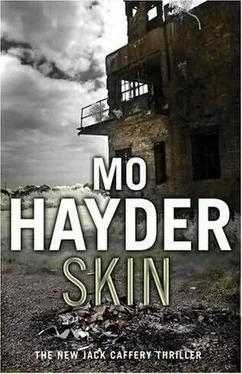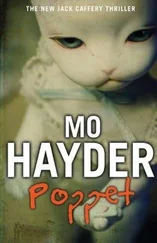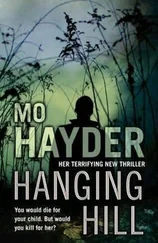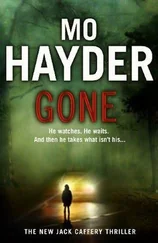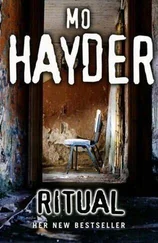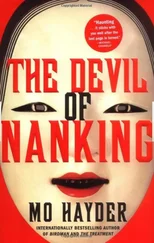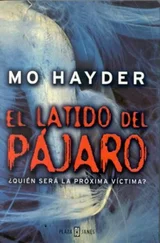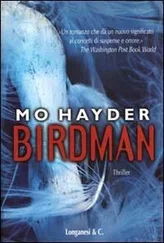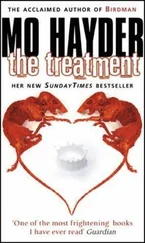‘Mum?’
No answer.
‘Mum?’
She sculled with her free hand, turning herself in the water. The beam of light yawed around her. It was a hallucination.
‘ Mum? Are you there?’
A movement. To her left. Just outside the beam of her torch. She swung the light across. About twenty yards away she saw feet. Human feet. Swimming away from her, fast.
Amos Chipeta.
She pushed her arms out into the darkness, the Salvo divelight clenched in both hands. The beam danced crazily across nothing. The feet had gone. All the light picked up was emptiness.
Heart huge in her chest she tipped the top half of her body down and began to swim towards where the feet had been. Her instinct was to switch off the light, not wanting to give herself away to whatever was disappearing ahead of her into the darkness, but without it she was blind. Shielding it with her hand, letting a pinkish half-light filter through her fingers, she moved carefully through the water.
According to the compass whatever it was had been travelling west and slightly upwards. She reached the underwater rockface of the quarry edge, shone the torch along it and saw nothing. The other way. Nothing. She checked the depth gauge. She was still a hundred feet below the surface. Turning the light above her head, she moved it in an arc. Even going fast Chipeta should still be within the beam. When she shone it down and swung it from side to side, covering every angle, there was still nothing to see. Just the plant life on the side of the rock. Moving lazily.
Something occurred to her. It was rumoured that the quarry connected with local caves left behind by the Roman lead miners. That there were tunnels here. Wedging the torch in her buoyancy jacket she moved her hands along the slimed surface.
It jumped at her, almost as soon as she’d started looking. A cavity. A place darker than the rest of the rock. It wasn’t on the quarry schematic – she was almost sure of that. She pushed her hand into it and shone the light around the edges, then into its depths to get the measure of it. There was no end to it. The beam shone into blackness. The diameter of the hole was big too: you could fit three men through here, even if they were wearing full diving gear.
Even in diving gear. She screwed up her face. No excuses, then.
One kick propelled her up and into the opening. She kept her hands on the walls, walked her fingers along, knowing how easy it would be to come into a narrowing so fast that the ceiling ripped the cylinders off her back. People had died like that, in places like the Eagle’s Nest sinkhole, or the Yucatan cave systems, not like her parents, in a fatal freefall to the bottom, but tangled in guide lines, lodged between unforgiving rocks, trapped in water-filled sumps and crawl spaces. She thought of them struggling on and on in the lonely darkness. Until the air gauge hit critical. Until the pony cylinder was dead and lungs sucked at a vacuum. Clangtanking, they called it. The worst way to die.
The floor sloped upwards. She was entering a chimney: a narrow tube about four feet wide heading vertically. Undeviating. The beam showed it was one straight ascent, the sides smooth, almost as if they’d been machine cut. She forced herself to take a brief decompression stop – breathing slowly, picturing the nitrogen fizzing out of her muscles. The clock numbers tumbled round. Six minutes. It would have to do. She filled her jacket with air and entered, one hand raised above her.
The expanding gas in the system lifted her fast. The walls whirred past, streaks of black limestone. Up and up and up, the long bore sucking the circle of light ahead of her, like a dream, look after yourself thudding in her ears with every heartbeat. Until at last, unexpectedly, she surged out of the top. Into air.
It was dark. She fumbled one elbow over the side of the chimney, breathing hard. Held herself level, only her face at the surface. Her legs she wedged in place, keeping her shoulder near the edge. If anything came at her she’d ram the dump valve against the rock, offload the air from her suit and drop straight back down the chimney. She concentrated on her breathing. In and out. In and out.
Almost a minute passed. No hands grabbed her head. No face appeared in front of her mask. Tentatively she lifted the light out of the water and aimed it in front of her. The beam floundered in the darkness and hit rock about twenty feet away – a mossed, dripping rockface. She moved the beam to her left: more rock. No mist, no moon, no trees. Instead, when she turned it skywards, the light found a roof almost forty feet above. The rumours had been true. She’d come out in one of the old lead caves.
There’d been accidental deaths in other UK dive units and after those it had been drummed into her in training: never take the mask off. Not until you know what the air’s like. She inched herself up with her feet, pulling herself out so she was kneeling astride the hole, sitting on her heels, tensed, the torch rammed out in front of her like a weapon, all the time ready to drop straight back into the chimney. Slowly, with her free hand, she lifted the mask webbing away from her ear, tipped her head to one side, held her breath and listened.
Something was breathing. Somewhere in the darkness. Hiding in the rocks.
She lifted the mask. Sniffed. Tasted the air. Waited. It was clean. Damp and full of the smells of water and rotting leaves. But clean. She looped the mask on one wrist so it was ready to pull back on, and put the fingers of her right hand on the floor. Leg muscles screaming, she tipped forward a bit and trained the flashlight on the sound.
The beam hit black rock and slithered around. Then, wedged between a crevice, something glinted. Eyes. Elliptical, set straight and level about three feet above the ground. Human eyes, but yellow and polluted. Staring at her. They blinked in the light and then, for a second, a large hand came up to shield them. Now she could judge the size of his head. It was anvil-shaped, the jaw too big, the neck squashed, almost non-existent. She could see the protruding tops of the ribcage, the way the bones looked too big. Could hear laboured breathing. Not an elf. Not a troll or a pixie or a gnome. Not a Tokoloshe. This was a human being. Wearing a threadbare sweatshirt and shorts, mashed-up flip-flops on his feet. She held herself steady. Held herself calm.
‘I’m police. Don’t move. Don’t come near me.’
The eyes blinked.
‘You take one step towards me and you’ll find yourself in the biggest shit fight you could imagine. OK?’
A hesitation. Then he nodded.
She pushed herself upright. Faced him squarely.
‘Amos. You’re Amos. Have you been following me?’
He shook his head.
‘What about that day in the squat last week? The day we broke in?’ She ran the back of her wrist across her mouth to clean away the taste of the quarry. ‘There was me and another officer. A man. In plain clothes.’
Silence. The eyes regarded her carefully, and now she glimpsed something else in the torchlight. A glimmer of plastic – storage containers, white plastic. The sort of thing you’d see in a teenager’s bedroom. Four, maybe five, stacked one on top of another. Then she saw more belongings. Smelt something burning. Saw a battered sleeping-bag. And it struck her that he was living here. Here, in the dark among the moss and the rotting leaves and the dead insects, he was trying to carve out an existence.
‘I don’t know who you are, but you’re not from England. You’re African. From Tanzania.’
The eyes stayed steady. Gazed at her. Waited for her to continue.
‘You’re illegal. And you’re in serious shit. Here and back home too.’ She moved her tongue around, tried to coax some saliva into her mouth. ‘I could make that shit deeper. I’ll do it if I have to.’
Читать дальше
